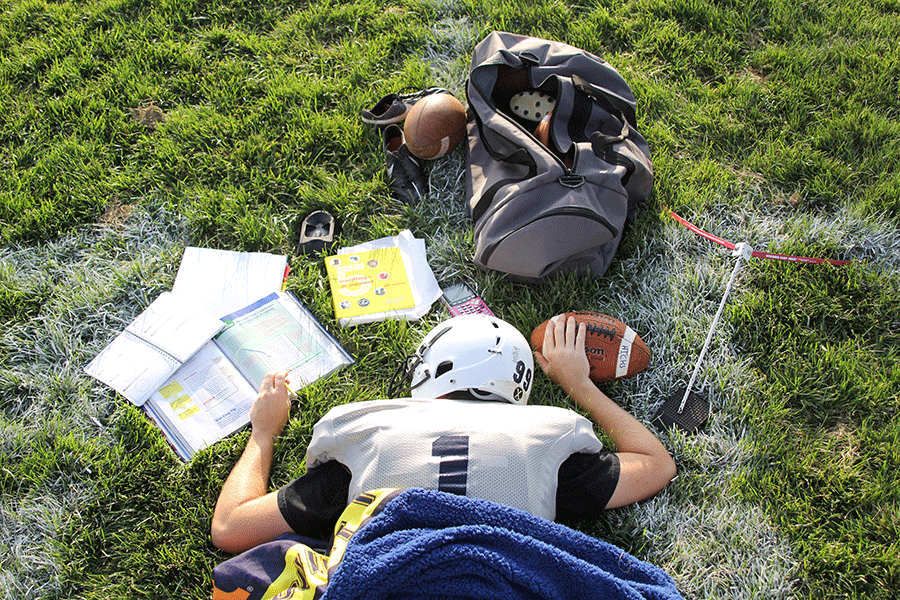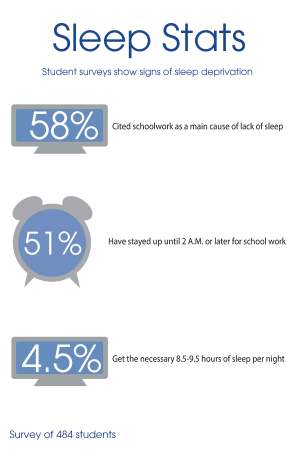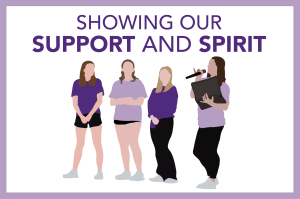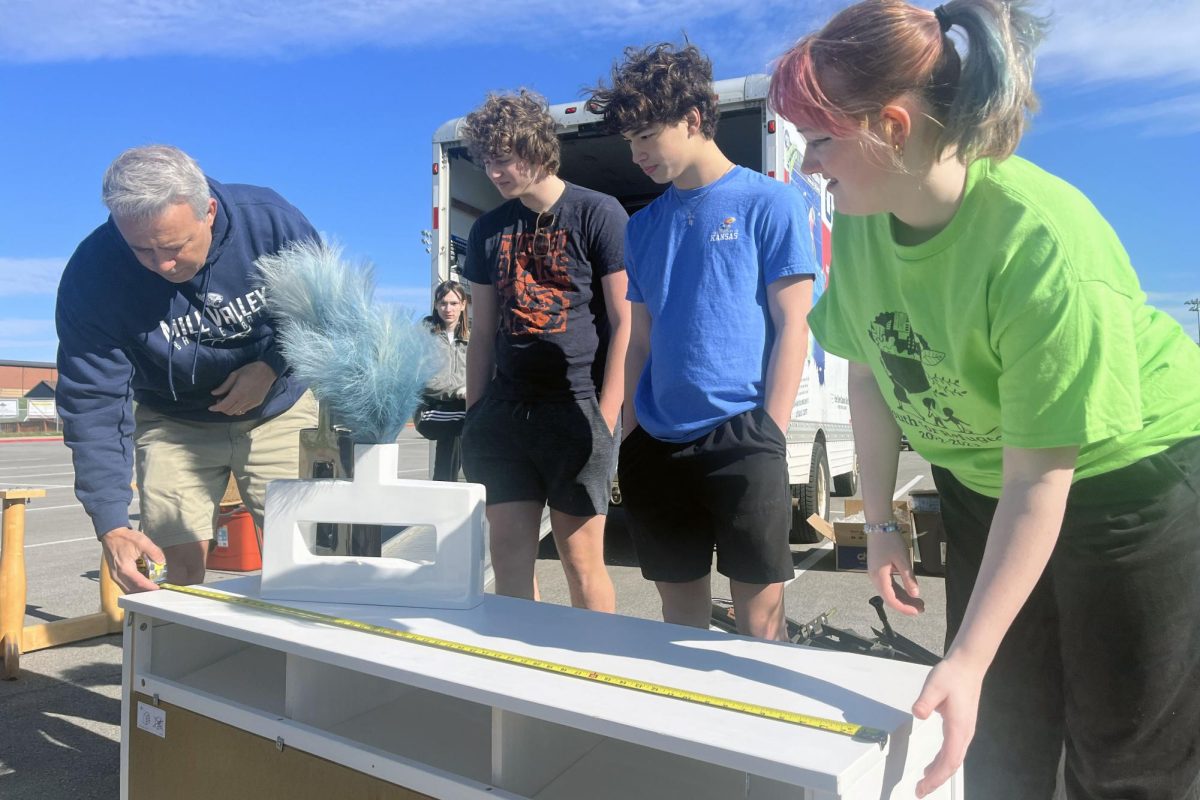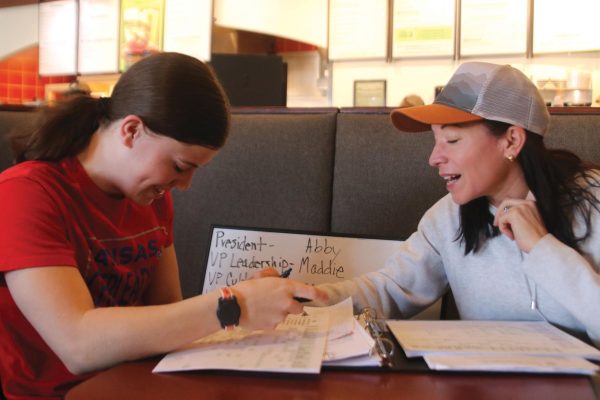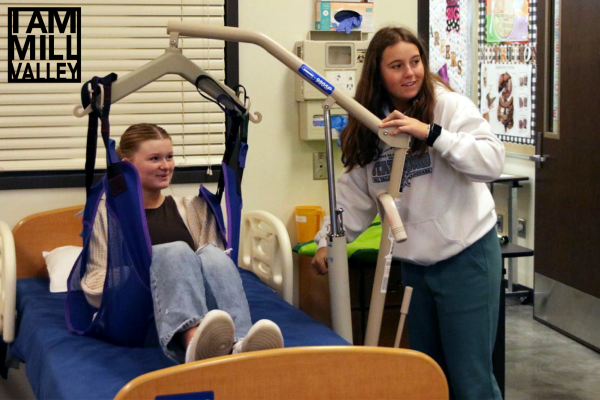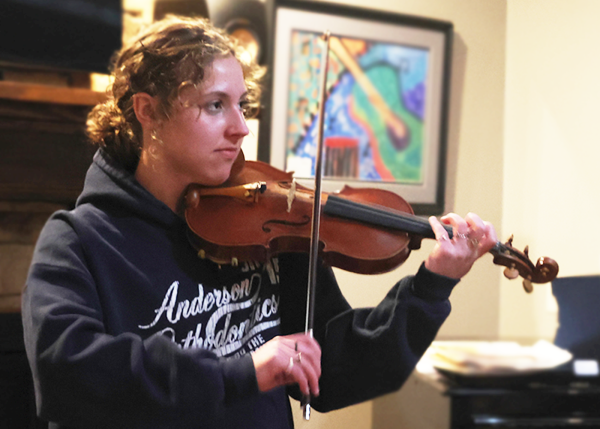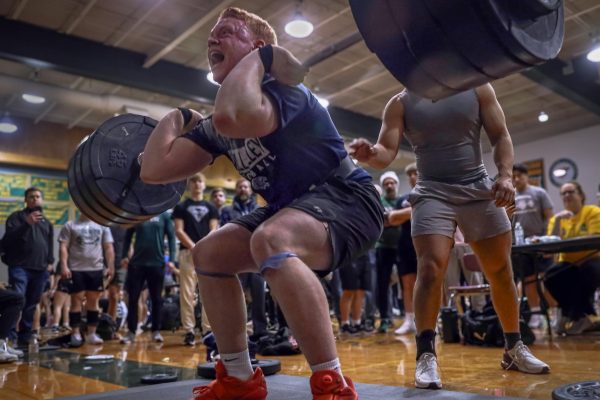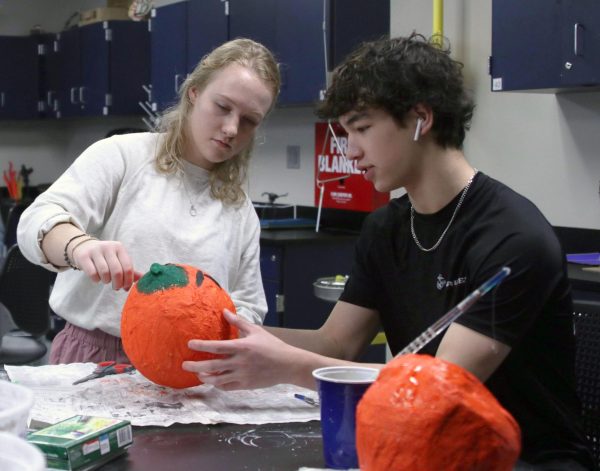Sleep deprivation negatively affects students
American Association of Pediatrics study brings up problems of school start times and sleep deprivation among students
September 18, 2014
The day before an important test or big game, it’s common to hear teachers and coaches encourage students to get a good night’s sleep. Senior Maddie Butterfield finds it hard to make this a reality, as she tends to get an average of 4-5 hours of sleep each night. Like many other students, Butterfield suffers from a lack of sleep during the school year.
“[When you’re sleep deprived], you’re exhausted during the day and it feels like you’re never fully rested,” Butterfield said. “I have to eat constantly. I had a nervous breakdown last year [because I had a total of 7-8 hours of sleep that week].”
According to the American Association of Pediatrics, teenagers are supposed to get 8.5-9.5 hours of sleep each night in order to maintain their general health and wellness. However, in a study published by the AAP, researchers found that 87 percent of high school students get less than the recommended minimum of 8.5 hours. According to a JagWire poll, only 4.5 percent of students meet the requirements. One of the cited causes for this lack of sleep is early school start times, as 40 percent of American high schools have a start time before 8 a.m., including Mill Valley.
“I think it’s a huge problem for adolescents,” pediatrician and associate professor of pediatrics at Kansas City University of Medicine and Biosciences Dr. Ray Newman said. “I read [an article] the other day and it said that by the time kids are in 12th grade, 75 to 80 percent of teenagers in this country are getting less than 7 hours of sleep at night, which is not enough for an adolescent brain and body.”
The AAP had a solution for this problem – starting school later. In the study, they suggested all high schools move their start times back to at least 8:30 a.m. Newman supports this suggestion.
“People started writing about this in 2005, when it first became recognized as … ‘we’re doing our adolescents a real disservice by starting their school so early,’” Newman said. “Some people start their school at 6:30 or 7 [a.m.], and that’s two hours before their body says they should be up and doing things.”
Another student who finds their lack of sleep affects them negatively is sophomore Emma Wilhoit. Wilhoit said she believes a later start to the school day would be beneficial.
“I think around 8:50 [a.m.] could be a good time. I know a lot of other schools do that and I know that means we wouldn’t get out until shortly before 4 [p.m.] and that could be a challenge,” Wilhoit said. “So the question is, would you rather stay up later [than you do now] and get up later or stay up late and get up early?”
The reason why it is so difficult for teenagers to go to sleep and wake up early is because their body’s biological clock tells them otherwise. When adolescents hit puberty, they experience what the AAP study calls a sleep-wake phase delay.
“In adolescents, their rhythm of their body, the way nature says they’re supposed to act, says ‘no, you shouldn’t be up at the crack of dawn and you shouldn’t be up till 2 in the morning,’” Newman said. “You should be up about 7:30 or 8 [a.m.] and in bed at 10 or 11 [p.m.]. It’s just the natural cycle of things.”
While it is well-known among students that not getting enough sleep at night can be detrimental to schoolwork, many do not realize the other harmful effects sleep deprivation can have.
“You can’t ignore the safety element of it either,” Newman said. “You have students driving after four hours of sleep at six o’clock in the morning. [Then] they’re at school for 10 or 12 hours and they’re sleep deprived on the way home. That’s really a consideration, as well.”
Students also find it hard to get a proper amount of sleep because of the combined workload of schoolwork, extracurricular activities and athletics.
Some students, such as sophomore Lance Marx, have been able to break the cycle of sleep deprivation.
“I used to wake up with only five hours of sleep and that really didn’t work for me,” Marx said. “I was always tired throughout the day and when I changed I found that it’s helpful and that lots of sleep is good.”
Although many students talk about sleep deprivation, Wilhoit thinks it does not receive the right kind of attention.
“I think [sleep deprivation] does get a lot of awareness, but it’s not in the right light,” Wilhoit said. “You walk down the halls and you hear people say ‘oh, I’m so exhausted, I stayed up so late to work on a project’ but you consider that to be normal, like a normal teenage problem. But it should be seen as more than that; it should not be so easily dismissed.”
For Butterfield, starting school later would be a solution to many problems that she has faced for years.
“If [school] started at 8:30 … that would be a godsend; it’d be phenomenal,” Butterfield said. “Sleep deprivation is an awful way to live … If you can get sleep, do so. It’s not worth the side effects.”



